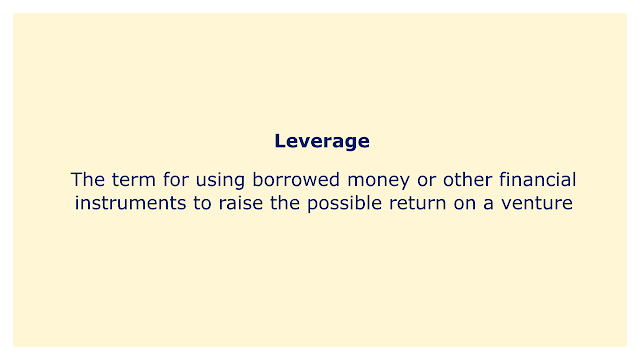 |
| Image: Moneybestpal.com |
Leverage is the term for using borrowed money or other financial instruments to raise the possible return on a venture. Leverage in finance has the ability to compound both gains and losses, making it a two-edged sword.
The debt-to-equity ratio, which compares a company's debt to its equity, is a common way to quantify leverage in traditional financial theory. A corporation that has a high debt-to-equity ratio is considered to be highly leveraged, which denotes that it has a sizable amount of debt in comparison to its equity.
Leverage allows investors to increase the possible return on investment by using borrowed money or other financial instruments. For instance, a business might borrow money to finance a new project in the hopes that the project will bring in more money than the loan would have cost. If the project is successful, the corporation will be able to make a bigger profit than it otherwise might have done without borrowing money.
But, if the project fails, the business might not be able to make enough money to pay back the borrowed money, which would result in a loss. Leverage in this situation has increased the company's losses.
Leverage can take many different forms, including combined, financial, and operating leverage. Using borrowed money to finance investments is referred to as financial leverage. Operational leverage refers to the use of fixed costs, such as rent or salary, to create income. Using both financial and operational leverage is referred to as combined leverage.
Leverage presents considerable risks in addition to the ability to boost an investment's returns. The investor may experience severe losses if the venture does not make enough money to offset the cost of the borrowed funds. A corporation may also be more susceptible to economic downturns if it has a high debt-to-equity ratio since it may find it difficult to pay its debts when business is slow.
